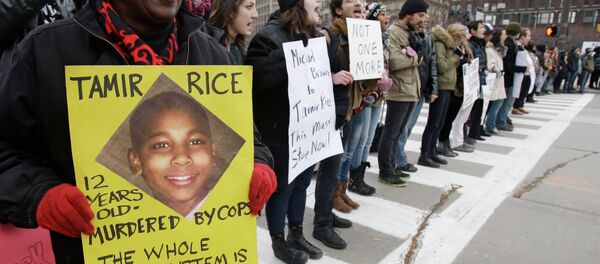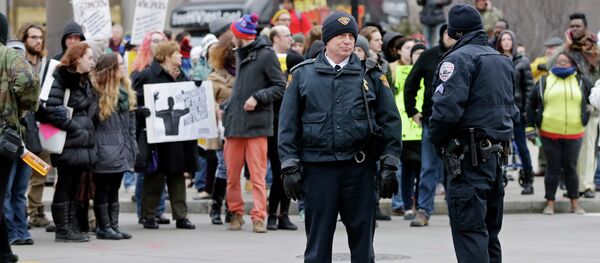Back on November 13, the family of 37-year-old Anderson had called the police for help, saying she was disturbing the peace. Anderson suffered from bipolar disease, and the family agreed to let the police take her to the hospital for a psychiatric evaluation. Anderson began kicking the police as they took her to the squad car, and a police officer put his knee on her back and handcuffed her before she stopped moving.
According to the medical examiner’s report, Anderson suffered a “sudden death associated with physical restraint in a prone position by Cleveland police.” The report also says it was a “homicide by legal intervention,” and that her mental condition and heart disease were factors in her death.
Anderson’s death occurs as the country’s law enforcement community is under the microscope, in the aftermath of protests after grand juries failed to indict police officers in the deaths of two unarmed black men, Michael Brown in Missouri and Eric Garner in New York City.
Cleveland police too, have failed, according to the U.S. Justice Department. According to a Justice Department investigation, Cleveland officers are not trained to handle people with mental health issues. Not only do they not have the training, the report says, they don’t practice the proper techniques to ensure the situation doesn’t get out of control, and officers end up using “cruel and excessive force against the mentally and medically ill."
The Cleveland police department is conducting its own investigation into Anderson’s death, and the two officers involved have been placed on restricted duty.
Anderson’s family released a statement, saying they want justice.
“Our beloved Tanisha’s death has been ruled a homicide," they said. "The family demands justice for Tanisha, a thorough criminal investigation and an independent prosecutor that results in accountability by the police officers and the Cleveland Police Department.”




